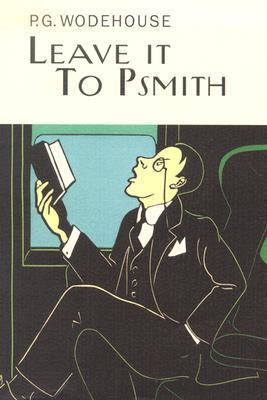What do you think?
Rate this book


328 pages, Hardcover
First published November 30, 1923



... free young spirits who had chafed at the prospect of being herded into the drawing-room on the eventful night to listen to Psmith's reading of Song of Squalor.... As far as the Reggies, Berties, Claudes, and Archies at that moment enjoying Lord Emsworth's hospitality were concerned the thing [i.e., the theft of a necklace] was top-hole, priceless, and indisputably what the doctor ordered. They spent a great deal of their time going from one country-house to another, and as a rule found the routine a little monotonous. A happening like that of the previous night gave a splendid zip to rural life. And when they reflected that, right on top of this binge, there was coming the County Ball, it seemed to them that God was in His heaven and all right with the world. They stuck cigarettes in long holders, and collected in groups, chattering like starlings.If the wacky characters don't get you, there is that wonderfully arresting use of the English language, which will have you guffawing in the library. For instance: "You're the sort of dumb Isaac that couldn't find a bass drum in a telephone booth!" Or, even better: "A depressing musty scent pervaded the place, as if a cheese had recently died there in painful circumstances." Then there is "that not unpleasant emptiness which is the silent luncheon-gong of the soul." One character, the obnoxious but efficient Baxter, "staring through his spectacles, often gave people the impression of possessing an eye that could pierce six inches of harveyized steel and stick out the other side."
'I merely say "Think it over." It is nothing to cause you mental distress. Other men love you. Freddie Threepwood loves you. Just add me to the list. That is all I ask. Muse on me from time to time. Reflect that I may be an acquired taste. You probably did not like olives the first time you tasted them. Now you probably do. Give me the same chance you would give an olive.'And, later...
'By the way, returning to the subject we were discussing last night, I forgot to mention, when asking you to marry me, that I can do card tricks.'
'Really?'
'And also a passable imitation of a cat calling to her young. ... These things come in very handy in the long winter evenings.'